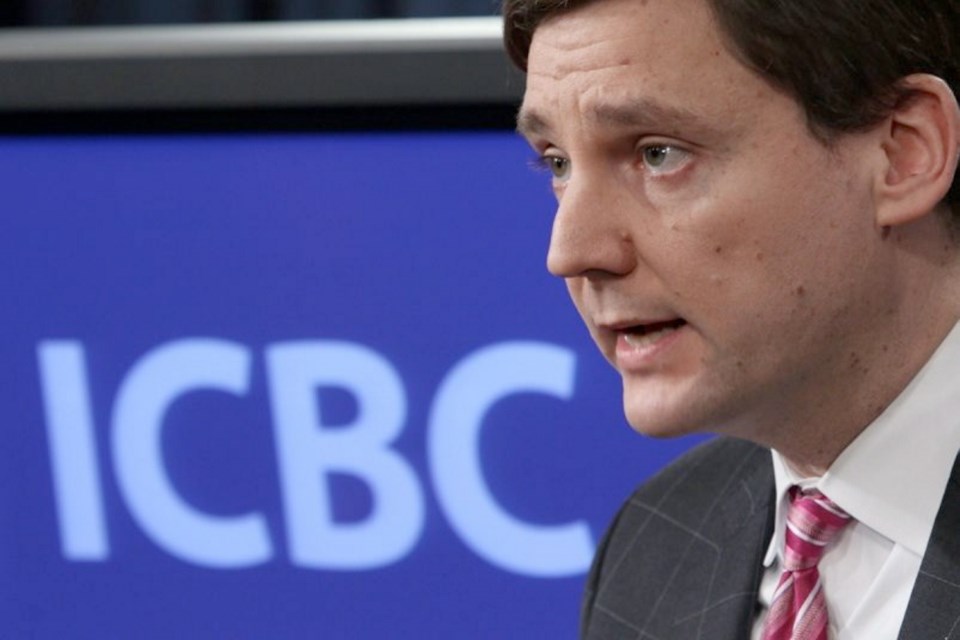The B.C. government will not change its new risk-rating system for automobile insurance, despite a backlash from young drivers whose rates are skyrocketing.
Attorney General David Eby said the financial pressures at the Insurance Corp. of B.C. and a redesign of insurance rates to make riskier drivers pay more are part of a “multi-year turnaround project for ICBC” that will continue as planned.
“It’s not gonna be fixed overnight,” Eby said.
“So yes, young drivers — not just young drivers, inexperienced drivers who are predominantly young but not exclusively — will be paying higher rates. And there’s really no way around that as far as I can see.”
Eby had hinted recently that he was exploring ways to reduce those rates, which kicked in on Sept. 1. Instead, the government now appears ready to face head-on the stories of skyrocketing insurance bills cited by critics during this fall’s legislative session.
College student Izabella Bryant, 18, said she was issued a $5,300 insurance bill by ICBC for basic and optional insurance this year, on her $10,600 2013 Nissan Altima. Other novice drivers are reporting similarly large bills.
ICBC’s changes link rates to driver history, and are intended to more accurately reflect the actual risk of a crash by driver type. Inexperienced drivers are 3.5 times more likely to get into an accident, according to ICBC.
“We’re not going to be adjusting the rate-design work that ICBC has done,” Eby said. “It’s important that the insurance premiums that people pay reflect their actual driving performance and their risk on British Columbia roads. That’s a core principle of insurance. And it’s something that ICBC has gotten away from, because it’s politically easier to avoid that question.
“With that said, the rates that people are paying in B.C. are too high, generally.”
ICBC lost almost $2.5 billion in the past two years as claims, legal fees and repair costs soared. Eby implemented a $5,500 cap on minor-injury claims for pain and suffering, which ICBC projects will save $1 billion and stabilize the Crown corporation to a $50-million loss this year.
The rate changes, however, are intended to be revenue-neutral.
Any reduction in rates for one group of drivers would presumably need to be recovered elsewhere, or require additional funding for ICBC.
But the provincial budget is already stretched thin and Finance Minister Carole James has warned that ICBC is a major risk to her projected surplus.
Eby said basic insurance rates remain competitive after the redesign, but optional insurance is where costs can jump quickly for inexperienced drivers.
Eby said he hopes ICBC’s telematics program — devices installed in vehicles that monitor how you drive, accelerate, brake and turn — can be used in the future to distinguish between risky and safe inexperienced drivers.
But he admits that could take years to fully implement. “This is a slow-moving ship,” he said.
Liberal critic Jas Johal said a sudden jump in auto-insurance rates hurts young people trying to get to school and work, especially in parts of the province where transit is less available.
“I don’t think Mr. Eby realizes the significant impact [the changes] are having on people’s lives with these absolute astronomical increases in insurance costs,” said Johal. “This is having a tremendous impact on families, and I can’t believe the NDP would let it continue.”
Eby said he’s working on additional reforms, including shortening the current rule that requires expert reports in auto-insurance cases to be produced 84 days before the next court date. One out of every four dollars spent at ICBC goes to legal costs.
“Finding a way to resolve claims sooner is really important,” he said. “The sooner you settle the claims, the smaller they tend to be.”
A previous change implemented by Eby to limit the number of expert reports used in auto-insurance cases is being challenged in court. Should ICBC lose, it’s expected to result in a $400-million hit to the corporation’s finances this year.
ICBC is also facing financial pressures from the rising cost of settling claims filed before the April 1 cap on pain and suffering payouts for minor injuries came into effect, and other legal challenges to its rule changes.



